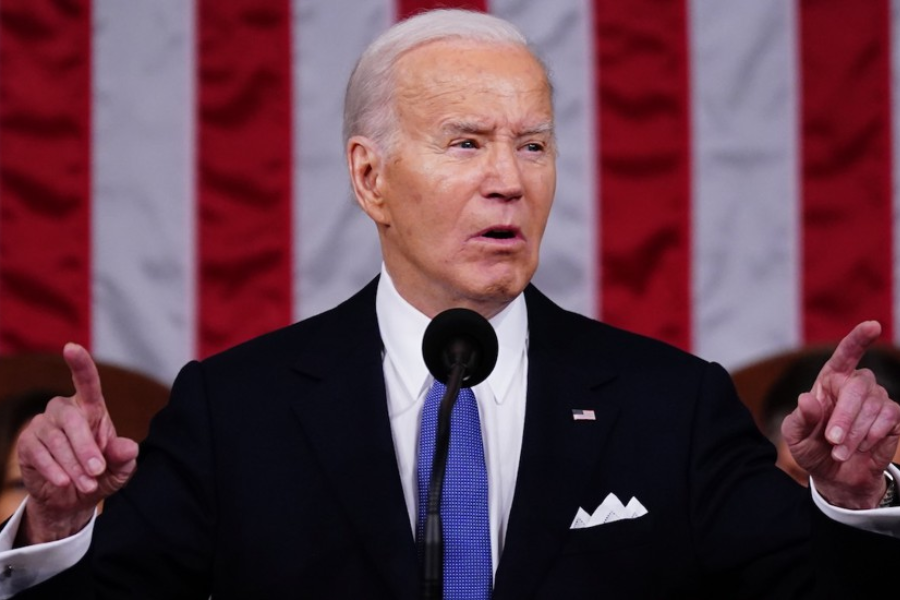Introduction
The rise of artificial intelligence (AI) has introduced remarkable technological advances, particularly in the realm of voice synthesis. One of the more controversial and increasingly discussed topics is the “Joe Biden AI voice”—a synthetic replication of the U.S. President’s voice used in various media, including political satire, misinformation, and content creation.
This article explores what the Joe Biden AI voice is, how it works, the potential risks and benefits of such AI-generated voices, and the ethical and legal implications of replicating the voice of a public figure using artificial intelligence.
What Is the Joe Biden AI Voice?
The Joe Biden AI voice refers to the digital recreation of President Joe Biden’s voice using AI voice synthesis technologies, typically built on deep learning models like text-to-speech (TTS) and voice cloning. These tools can mimic the pitch, cadence, tone, and rhythm of Biden’s real voice, allowing users to generate spoken content that sounds strikingly similar to the President.
This technology has been used for:
- Political satire or parody videos
- Misinformation campaigns or deepfakes
- Entertainment content such as memes
- Experimental or educational AI projects
How AI Voice Cloning Works
AI-generated voices are created using machine learning models that are trained on hours of speech recordings. Here’s how the process typically works:
1. Voice Data Collection
Large datasets of Joe Biden’s public speeches, interviews, and media appearances are compiled to capture vocal nuances.
2. Training the AI Model
The audio data is fed into a neural network—often a deep learning model like Tacotron 2, WaveNet, or Vall-E—which learns the patterns and vocal inflections.
3. Text-to-Speech Synthesis
Once trained, the model can take written text and produce audio that mimics Biden’s voice, including his recognizable stammer, pace, and tone.
Applications of the Joe Biden AI Voice
While the technology has novelty and entertainment value, it also has serious use cases and implications.
1. Entertainment and Parody
AI voices are widely used in social media skits, TikTok videos, and satirical content. Mimicking Biden’s voice in a joke or parody may be considered fair use depending on context.
2. Education and Accessibility
In controlled settings, AI voices can be used to educate people about politics, speech patterns, or historical events by recreating speeches or generating new content that mimics historical figures.
3. Misinformation and Propaganda
One of the most concerning uses is the creation of deepfake audio, where fake recordings of President Biden saying things he never actually said are generated to mislead, confuse, or manipulate audiences.
Risks and Ethical Concerns
1. Misinformation and Deepfakes
Fake audio clips of Joe Biden can be used to spread false political narratives, potentially undermining democratic institutions and sowing distrust in government.
2. Defamation and Character Attacks
AI voices can be used maliciously to create offensive or damaging content that appears to come from Biden himself, which could be defamatory or emotionally harmful.
3. Intellectual Property Violations
Using someone’s voice—especially a public figure—for commercial purposes without consent may violate personality rights or publicity rights.
4. Loss of Trust in Media
As deepfake voices become more realistic, it becomes harder to trust audio evidence. This raises serious concerns for journalism, legal proceedings, and social discourse.
Legal Landscape: Is It Legal to Use a Joe Biden AI Voice?
The legal status of using synthetic versions of public figures’ voices, including Joe Biden’s, is still evolving. Key legal considerations include:
- Right of Publicity: Even public figures have limited control over how their voice and likeness are used commercially.
- Fair Use: Parody, satire, and educational uses may be protected under fair use in the U.S.
- Defamation and Libel Laws: Publishing AI-generated audio with malicious or deceptive intent could expose users to lawsuits.
As of now, no federal law specifically bans AI voice cloning, but several U.S. states are moving to regulate synthetic media.
Best Practices for Ethical Use
For developers, content creators, and users interested in AI voice tools, here are ethical guidelines:
- Disclose AI Use: Always disclose when a voice is AI-generated.
- Avoid Deception: Never use AI voices to impersonate someone for fraudulent purposes.
- Respect Consent: Do not use someone’s likeness or voice without their permission, especially for commercial gain.
- Use for Creative or Satirical Purposes Responsibly: Ensure the audience understands the content is fictional or humorous.
Available Tools That Can Clone Biden’s Voice
Several platforms allow users to generate AI voices. While some are general-purpose, others specifically allow political voice cloning.
- ElevenLabs: High-quality voice synthesis with public voice cloning tools.
- Resemble AI: Offers voice cloning for businesses and creators.
- FakeYou: Offers a wide range of public figure voices, including Joe Biden, often used for memes.
- iMyFone VoxBox: Known for creating realistic voiceovers for entertainment.
Note: Use of such platforms should comply with ethical and legal standards.
Conclusion
The Joe Biden AI voice represents the convergence of cutting-edge technology and public discourse. While it has promising creative and educational applications, it also poses serious risks related to misinformation, consent, and ethics.
As synthetic media becomes more advanced and accessible, it’s crucial for both developers and users to approach it responsibly. Lawmakers, educators, and technology leaders must collaborate to set boundaries that preserve free speech while protecting truth and identity in a digitally enhanced world.
FAQs
Q1: Is it illegal to use a Joe Biden AI voice?
Using an AI-generated Joe Biden voice is not inherently illegal, but using it for deceptive, defamatory, or commercial purposes without consent could violate laws.
Q2: Can I use the Biden AI voice for parody or comedy?
Yes, parody and satire may be protected under fair use laws, but context matters. Clear disclaimers are recommended.
Q3: How accurate are Joe Biden AI voices?
Modern voice cloning tools can replicate Biden’s voice with surprising accuracy, including intonation, pauses, and his recognizable vocal style.
Q4: Are there any protections against misuse of AI-generated voices?
Some states are developing laws to regulate synthetic media. Social media platforms are also introducing AI content labels and restrictions.
Q5: What are the ethical concerns of using AI to replicate voices?
The main concerns are consent, misinformation, defamation, and the erosion of trust in audio media.



